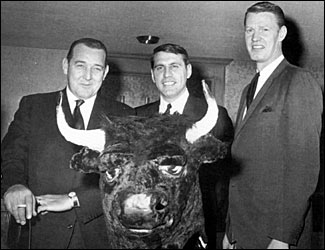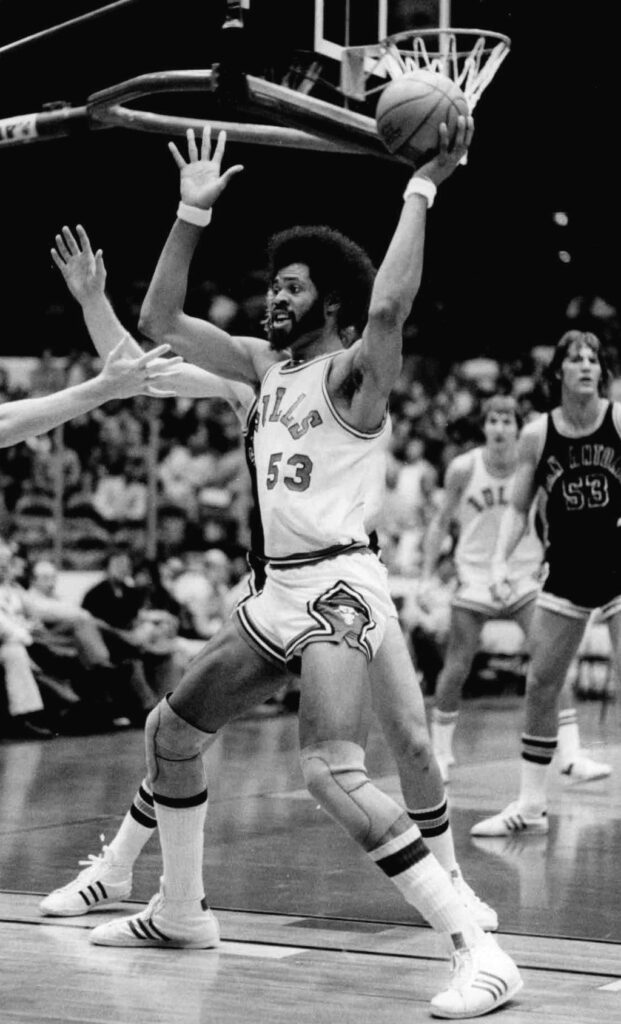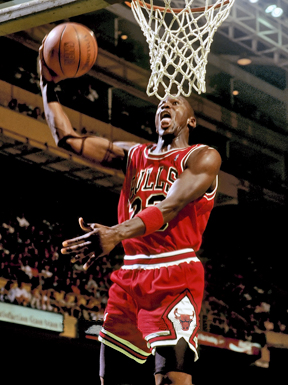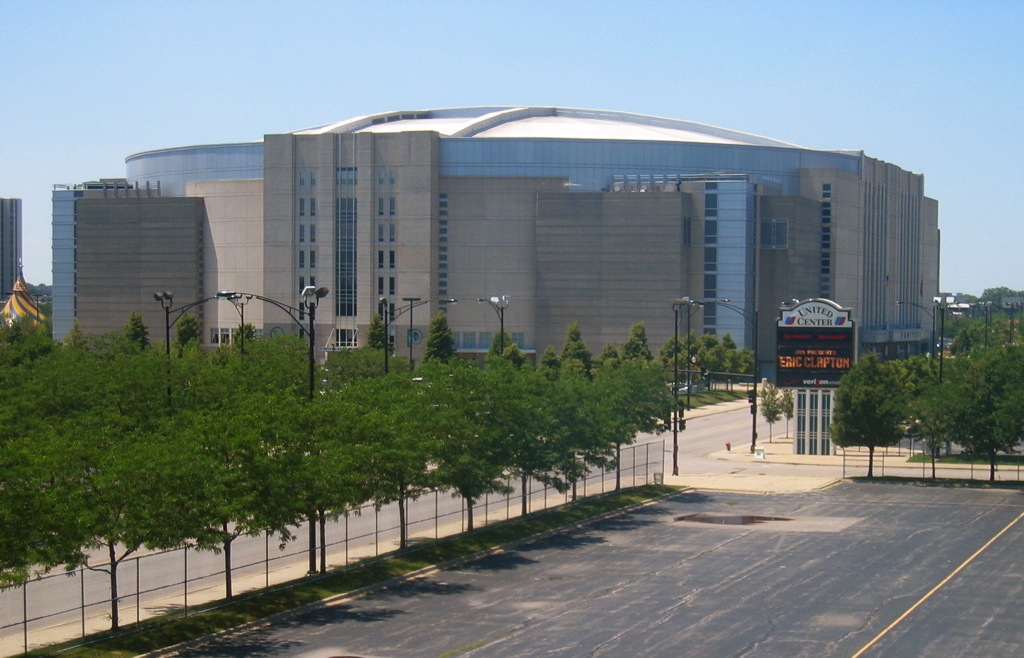The History of the Chicago Bulls: From Inception to Modern Era
The Chicago Bulls, a beloved basketball team not only in the city but worldwide, has a rich history that spans over five decades. From their humble beginnings in 1966 to their dominant years in the 1990s led by the legendary Michael Jordan, the Bulls have left an indelible mark on the NBA. In this comprehensive article, we will take a deep dive into the team’s history, highlighting key moments, players, and their impact on the sport of basketball.
The Birth of a Team: 1966-1975

In January 1966, the Chicago Bulls were granted a franchise, becoming the third professional basketball team in the city. The team’s owner, Dick Klein, was a former basketball player himself, bringing a unique perspective to the organization. The Bulls acquired players from other teams through the 1966 NBA Expansion Draft, forming their inaugural roster.
Led by coach Johnny Kerr and key players such as Guy Rodgers, Jerry Sloan, and Bob Boozer, the Bulls made an immediate impact in their first season. They became the only team in NBA history to qualify for the playoffs in their inaugural year, setting high expectations for the seasons to come.
Despite this early success, the excitement around the Bulls waned after their initial seasons. In 1975, Pat Williams took over as the team’s general manager and implemented strategies to increase attendance and reinvigorate fan interest. Williams revamped the roster and hired Dick Motta as the head coach, leading to improved performance and a surge in attendance to around 10,000 fans per game.
The Wirtz Family Era: 1976-1984
In 1976, the Bulls’ ownership changed hands as the Wirtz family, known for their ownership of the Blackhawks, acquired the team. Unfortunately, their lack of interest in basketball resulted in a period of struggle for the Bulls. The team operated on a limited budget, leading to declining attendance and performance on the court.

During this era, the Bulls experienced a significant decline in their fortunes. However, the team would soon undergo a transformation that would change the course of their history.
The Rise of an Icon: 1984-1998

In 1984, the Chicago Bulls drafted a young and promising player named Michael Jordan. Little did they know that this would be the start of a golden era for the franchise. Jordan’s arrival ignited a renewed sense of hope and excitement among Bulls fans, as they witnessed the emergence of a player who would go on to become the greatest basketball player of all time.
Under the guidance of head coach Doug Collins, Jordan quickly made his mark in the NBA, winning the Rookie of the Year award in the 1984-85 season. However, despite his individual brilliance, the Bulls struggled to achieve postseason success in their early years. They were eliminated in the first round of the playoffs in each of Jordan’s first three seasons.
In 1987, the Bulls added another key piece to their roster, drafting Scottie Pippen. Pippen’s arrival proved to be a game-changer, as his partnership with Jordan formed one of the most formidable duos in NBA history. The duo’s chemistry, combined with the implementation of the triangle offense under coach Phil Jackson, propelled the Bulls to new heights.
With the triangle offense in place, the Bulls surrounded Jordan and Pippen with a roster of role players who perfectly complemented their skills. Players like Horace Grant, Bill Cartwright, and John Paxson played crucial roles in the Bulls’ success, enabling them to compete against the dominant teams of the era.
In 1991, the Bulls achieved a significant milestone, winning their first NBA championship. This victory marked the beginning of a dynasty, as the Bulls went on to win two more consecutive championships in 1992 and 1993. They became the first team since the Boston Celtics in the 1960s to win three consecutive titles.
The Bulls’ dominance continued in the following years, despite facing a significant setback. In 1993, Michael Jordan shocked the world by announcing his retirement following the tragic death of his father. However, he would make a triumphant return to the team in 1995, leading the Bulls to further success.
In the 1995-96 season, the Bulls achieved a historic feat, setting a new NBA record with 72 regular-season wins. This remarkable accomplishment showcased the team’s unparalleled dominance and solidified their status as one of the greatest teams in basketball history. The Bulls capped off their record-breaking season by winning their fourth NBA championship, solidifying their place in sports history.
The Bulls’ success continued with two more championships in 1997 and 1998, completing a second three-peat. However, despite their unparalleled achievements, tensions within the organization led to significant changes that would shape the team’s future.
Post-Jordan Era: 1998-2008
Following their sixth championship in 1998, the Bulls faced a crossroads. Head coach Phil Jackson, unhappy with the team’s management, decided to leave the organization, triggering the departure of key players such as Michael Jordan, Scottie Pippen, and Dennis Rodman. The team embarked on a rebuilding phase, looking to regroup and find new stars to carry on the Bulls’ legacy.
Under new leadership and with a younger roster, the Bulls faced numerous challenges in the post-Jordan era. They struggled to replicate their past success, with several seasons of underwhelming performances. The team went through multiple coaching changes and roster overhauls, attempting to find the right formula to return to their former glory.
The Derrick Rose Era: 2008-2016

In 2008, the Bulls found a glimmer of hope with the arrival of Derrick Rose. Rose, a Chicago native, quickly established himself as one of the league’s most promising young talents. In 2011, he became the first Bulls player since Michael Jordan to win the NBA Most Valuable Player (MVP) award, reigniting the spirit of Bulls basketball in the city.
Alongside Rose, the Bulls drafted Jimmy Butler in 2011, another rising star who would become a key contributor to the team’s success. With Rose and Butler leading the charge, the Bulls enjoyed several strong seasons, making multiple playoff appearances.
However, injuries plagued Rose’s career, hindering the team’s progress. Despite these setbacks, the Bulls continued to fight and qualify for the playoffs even in Rose’s absence. The team underwent coaching changes, bringing in new strategies and personnel to adapt to the challenges they faced.
The Modern Era: Present and Future

Today, the Chicago Bulls are focused on rebuilding and developing a young and talented roster. Under the leadership of general manager Marc Eversley, the team aims to return to the upper echelons of the NBA. The current roster includes promising players such as Wendell Carter, Kris Dunn, and Coby White, who have shown flashes of their potential.
While the road to success may be challenging, the Bulls have a rich history to draw inspiration from. The team’s legacy, built on the foundations of Michael Jordan’s greatness and the achievements of past eras, serves as a constant reminder of what is possible.
As Bulls fans eagerly await the next chapter in the team’s history, one thing remains certain—the Chicago Bulls will always hold a special place in the hearts of basketball enthusiasts, not only in Chicago but around the world.
The Bulls have won a total of six NBA championships, with their most successful period occurring in the 1990s with Michael Jordan as their leader. The team has also had success in producing star players, including Derrick Rose, who won the NBA MVP award in 2011.


